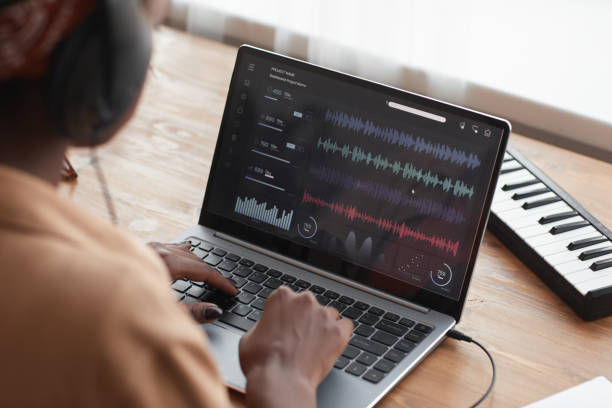What to look for in choosing Music Editing AI Tools
- Sep 20, 2025
- 3 min read
In today's fast-paced world of music production, artificial intelligence (AI) has changed how artists, producers, and sound engineers edit their music. With so many AI tools on the market, picking the right one can feel overwhelming.

This guide will help you identify key factors to consider when selecting music editing AI tools, ensuring you choose one that fits your creative needs perfectly.
Understanding Your Needs
Before diving into the world of AI tools, take a moment to assess what you truly need. Are you a beginner eager to improve your skills, or are you an experienced professional seeking advanced options? Knowing your expertise level and what you want to achieve is crucial in narrowing down your choices.
Think about the type of projects you usually handle. Do you concentrate on mixing, mastering, or composing? For instance, if your focus is on mixing tracks, you might want a tool that excels in mixing capabilities, possibly featuring options like multi-track editing or preset sound profiles.
User Interface and Experience
The user interface (UI) of an AI music editing tool greatly affects your overall experience. A clean and intuitive interface can enhance your workflow, allowing you to concentrate on your creative output without getting lost in complicated menus. Seek tools that offer customizable layouts and swift access to essential features.
Consider the learning curve as well. Some AI music software may include many features that take time to master. Others are designed for quick use. If you are new to this field, look for a user-friendly tool that makes learning enjoyable. For example, tools like GarageBand or Ableton Live Lite are often praised for their ease of use among beginners.
Features and Functionality
When comparing music editing AI tools, focus on the features they provide. Here are critical functionalities to consider:
AI-Powered Editing
A standout benefit of AI tools is their ability to streamline repetitive tasks. Look for software that includes features like automatic beat detection, pitch correction, and noise reduction. For instance, tools like LANDR offer automated mastering, which can save new artists hours of editing time, letting them focus on creativity instead.
Collaboration Tools
Collaboration is vital in today's music scene. Choose a tool that makes it easy to share and collaborate with other artists or producers. Features such as cloud storage, real-time editing, and version control can significantly improve teamwork. Software like Splice allows easy song collaboration and even offers a library of samples to work with.
Quality of AI Algorithms
The effectiveness of an AI music editing tool often hinges on the quality of its underlying algorithms. Investigate the technology driving the tool and check user reviews to assess its performance. Superior algorithms can result in better sound quality and more precise edits. For example, tools like iZotope's RX are highly regarded for their advanced algorithms in audio repair and enhancement.
Updates and Improvements
AI technology is always advancing, and so should your music editing tools. Opt for software that receives regular upgrades and enhancements. A tool that evolves, like Adobe Audition, will keep you updated with the latest features and improvements.
Customer Support and Community
Access to reliable customer support can greatly influence your experience with music editing AI tools. Look for brands that offer diverse support channels, including tutorials, forums, and direct contact options. A vibrant community may also provide tips that help you maximize the tool's potential, leading to a more fruitful creative process.
Pricing and Value
Cost is always an essential consideration when selecting music editing AI tools. Assess the price in relation to the features you need. Some tools operate on a one-time purchase model, while others use subscriptions. For instance, a subscription-based tool like Logic Pro X can provide you with regular updates and new features.
Free Trials and Demos
Many AI music editing tools offer free trials or demos that allow you to test the software before committing to a purchase. Use these opportunities to ensure the tool fits your needs and complements your workflow. For example, most major DAWs have trial versions that let you explore features extensively.
Reviews and Recommendations
Before making your final choice, actively seek insights from other users. Online forums, social media groups, and music production communities can provide valuable feedback on various tools. Pay attention to comments about usability, performance, and customer support, as these can greatly influence your experience.
Final Thoughts
Choosing the right music editing AI tools can dramatically impact both your creative process and the quality of your final product. By assessing your needs, evaluating user experiences, and exploring essential features, you'll be well-equipped to make an informed decision.
Remember to take advantage of free trials, seek community insights, and stay updated on technological advancements. With the right tool in hand, you're on your way to enhancing your music production journey.




Comments